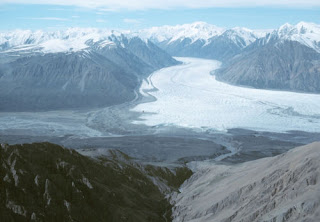
I consider myself to be rather knowledgeable when it comes to trivial historic facts and stories. After all, one can hardly live with Tom for 11 years and not become an encyclopedia of useless knowledge. However, upon circling the 1/2 frozen tidal basin with my friend Patty yesterday, I was informed of an ice age I never knew occurred. Since I was uninformed, I figured my readers were as well (all two of them).
You can read this link for details, but here are some excerpts from wikipda.org on the LITTLE ICE AGE which occurred for a couple hundred years and ended in the mid-18th century.
The Little Ice Age brought bitterly cold winters to many parts of the world, but is most thoroughly documented in Europe and North America. In the mid 17th Century, glaciers in the Swiss Alps advanced, gradually engulfing farms and crushing entire villages.
In the winter of 1780, New York Harbor froze, allowing people to walk from Manhattan to Staten Island (ummm. If you are in Manhattan, why would you EVER leave and go to Staten Island?) .
The severe winters affected human life in ways large and small. The population of Iceland fell by half but this was perhaps also due to fluorosis caused by the eruption of the volcano Laki in 1783. The Viking colonies in Greenland, however, clearly died out (in the 1400s) because they could no longer grow enough food there. In North America, American Indians formed leagues in response to food shortages.
In many years, snowfall was much heavier than recorded before or since, and the snow lay on the ground for many months longer than it does today. Many springs and summers were outstandingly cold and wet, although there was great variability between years and groups of years.
European settlers also reported exceptionally severe winters. For example, in 1607-8 ice persisted on Lake Superior until June.
Beginning around 1850, the world's climate began warming again and the Little Ice Age is said to have come to an end it that time.
Some global warming critics believe that the Earth's climate is still recovering from the Little Ice Age and that human activity is not the decisive factor in present temperature trends (right, tell that to Mr. Gore).
And so friends, there you have it, history in a nut shell. I am completely aware of the fact that I might be the only person who didn't know about this meteorological miracle, but you what they say, "if you can touch 1 kid, you've made a difference".
Happy Groundhog Day!
D
You can read this link for details, but here are some excerpts from wikipda.org on the LITTLE ICE AGE which occurred for a couple hundred years and ended in the mid-18th century.
The Little Ice Age brought bitterly cold winters to many parts of the world, but is most thoroughly documented in Europe and North America. In the mid 17th Century, glaciers in the Swiss Alps advanced, gradually engulfing farms and crushing entire villages.
In the winter of 1780, New York Harbor froze, allowing people to walk from Manhattan to Staten Island (ummm. If you are in Manhattan, why would you EVER leave and go to Staten Island?) .
The severe winters affected human life in ways large and small. The population of Iceland fell by half but this was perhaps also due to fluorosis caused by the eruption of the volcano Laki in 1783. The Viking colonies in Greenland, however, clearly died out (in the 1400s) because they could no longer grow enough food there. In North America, American Indians formed leagues in response to food shortages.
In many years, snowfall was much heavier than recorded before or since, and the snow lay on the ground for many months longer than it does today. Many springs and summers were outstandingly cold and wet, although there was great variability between years and groups of years.
European settlers also reported exceptionally severe winters. For example, in 1607-8 ice persisted on Lake Superior until June.
Beginning around 1850, the world's climate began warming again and the Little Ice Age is said to have come to an end it that time.
Some global warming critics believe that the Earth's climate is still recovering from the Little Ice Age and that human activity is not the decisive factor in present temperature trends (right, tell that to Mr. Gore).
And so friends, there you have it, history in a nut shell. I am completely aware of the fact that I might be the only person who didn't know about this meteorological miracle, but you what they say, "if you can touch 1 kid, you've made a difference".
Happy Groundhog Day!
D
1 comment:
Yippee, my useless knowledge make your blog! I'm honored!
Post a Comment